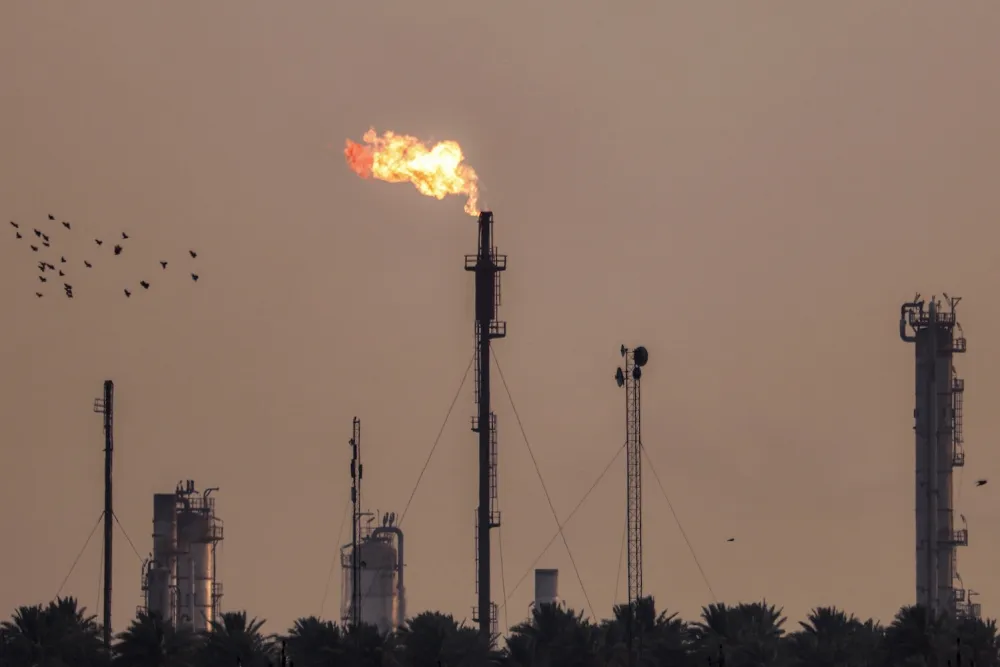
作者/Author(s): Gregory Brew
網站來源/Source: Foreign Policy
日期/Date: 07/23/2025
關鍵字/Keywords: 能源、石油、制裁
摘要:
在美國轟炸伊朗核設施後,伊朗仍持續出口石油;中國亦無視美國的制裁威脅,持續購買伊朗石油,這凸顯了制裁的侷限。
- 制裁是一種強制性手段,旨在對目標造成經濟痛苦,迫使對方改變行為。然而,一旦這個被制裁國能夠承受衝擊,或繞過制裁措施,那麼制裁不僅不能促使其行為轉變,反而可能改變經濟體系,讓石油貿易從原先的商業考量轉為地緣政治導向。
- 美國傾向於使用石油制裁來孤立中國,但制裁伊朗與俄羅斯的經驗顯示,這種做法不僅成效不彰,反而促使對手更緊密結合。
- 2018年美國重啟對伊朗石油制裁,加上新冠疫情影響,一度導致石油出口下降;但疫情過後,中國成為伊朗石油的主要客戶。制裁非但沒有扼殺伊朗的石油貿易,反而改變了交易結構—在中國「茶壺」煉油廠使用非美元渠道購買伊朗石油時,北京方面亦協助隱瞞海關數據以保持否認空間。
- 西方對俄羅斯的石油制裁也未奏效。西方為了避免干擾全球油價,僅針對俄羅斯的石油收益實施限制,並未限制實體石油交易。俄羅斯就跟伊朗一樣,一邊承受金融壓力,一邊設法規避制裁。
- 這些石油制裁並未改變伊朗與俄羅斯的行為,反而讓這兩國更依賴北京。更誇張地說,此舉加強了這些國家的專制政權,減少其對全球經濟體系的依賴,反而又削弱了制裁的有效性。
- 美國攻擊伊朗並威脅加大對俄羅斯的經濟壓力,顯示出他沒有信心繼續使用制裁工具。此外,若制裁力度過大,恐衝擊全球石油價格與供應。
- 美國可能會利用石油制裁,趁機推動與中國的能源貿易脫鈎,但制裁全球最大能源出口國並非明智之舉。此外,美國必須威脅對西方能源公司進行二次制裁,此舉可能反噬美國自身的經濟利益。
Summary:
Iran remained undeterred from selling its oil despite the US striking its nuclear facilities. China also shrugged off the US sanctions threat to continue buying Iranian oil. These events indicated the limitations of sanctions.
- Sanctions are coercive instruments intended to cause economic pain to the target until it changes its behavior. A target could weather the sanctions or work around the measures. Instead of changing the target's behavior, it may alter economic relations and center oil trade around geopolitics rather than commercial rationale.
- The US is inclined to use oil sanctions to isolate China, but its use against Iran and Russia indicates it did not work as intended and brought its rivals closer.
- Although the US reimposition of oil sanctions on Iran in 2018 and the COVID-19 pandemic almost led to a decline in its oil exports, China became the primary customer of Iranian oil after the pandemic. Instead of killing the Iranian oil trade, the sanctions reformed the structure when Chinese teapot refiners purchased Iranian oil using non-dollar channels, aided by Beijing's assistance in concealing customs data to maintain deniability.
- Russian oil sanctions also failed. The Western sanctions only targeted Russian oil revenues rather than its physical trade, fearing it would upend the global oil price. Russia navigated the financial pressure and managed to circumvent Western sanctions like Iran did.
- These oil sanctions failed to change Iran and Russia's behavior while pushing them closer to Beijing. Furthermore, it also reinforced the authoritarian regimes in these countries and reduced their countries' exposure to the global economy, thereby decreasing the effectiveness of sanctions.
- The US attack on Iran and the threat to increase economic pressure on Russia hint at the US's lack of confidence in continuing its sanctions practices. Furthermore, if the US pushes oil sanctions too far, it may shock global oil prices and supply.
- The US may use oil sanctions to decouple energy trade with China, but sanctioning the largest energy exporter is not wise. Moreover, the US must threaten secondary sanctions on Western energy companies, which may backfire against its economy.
